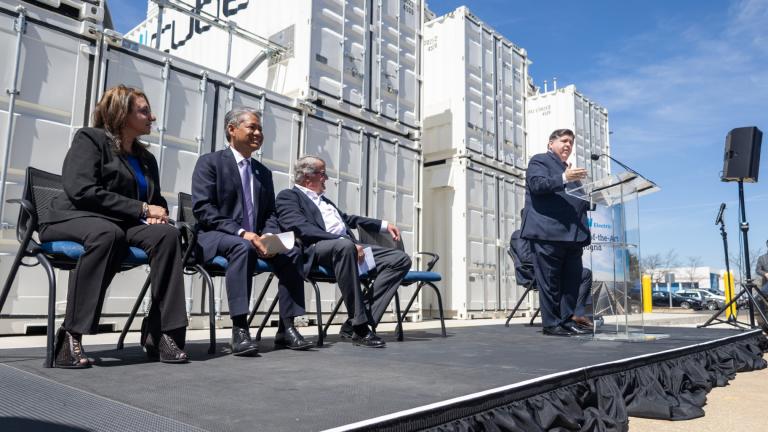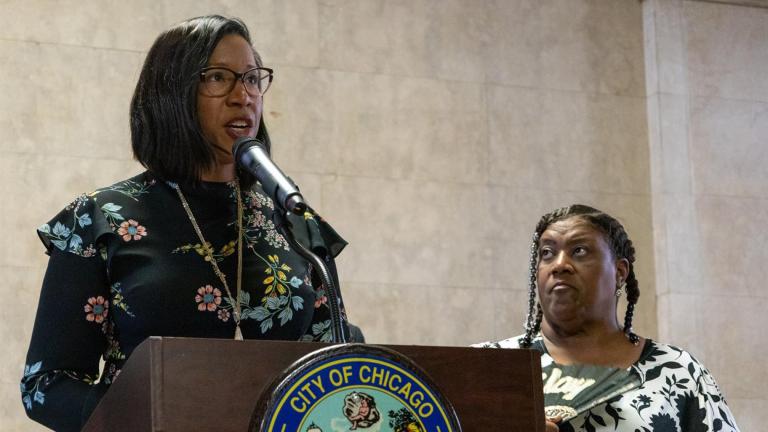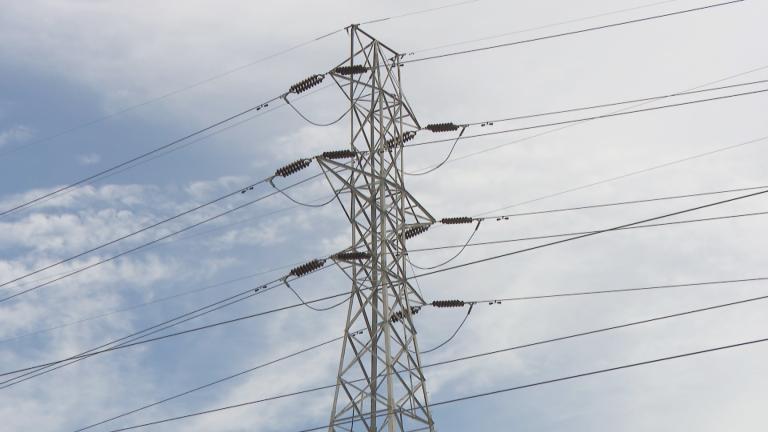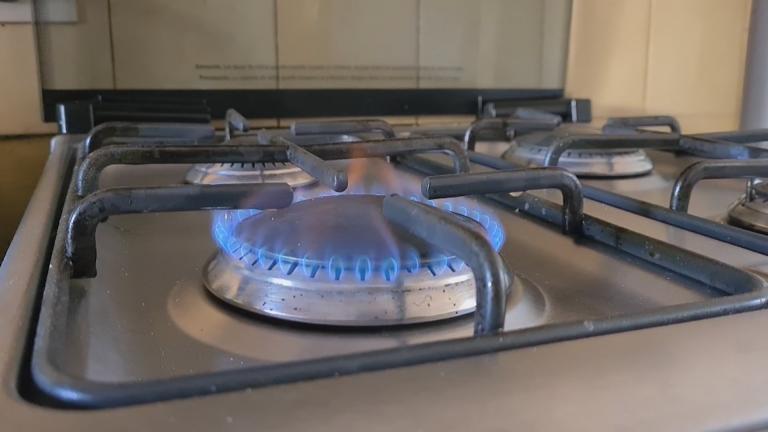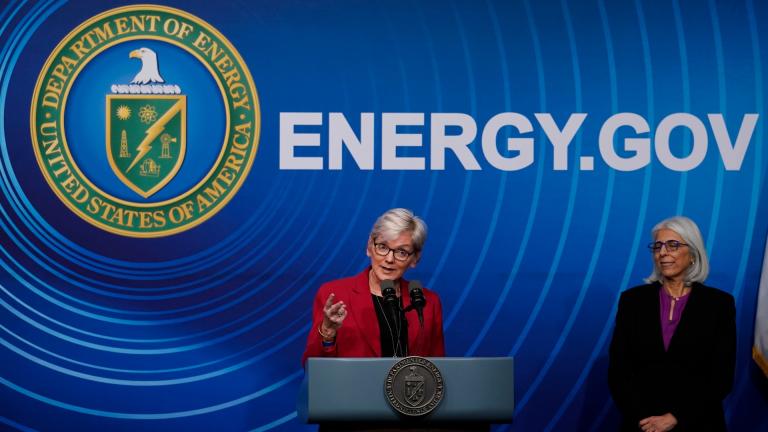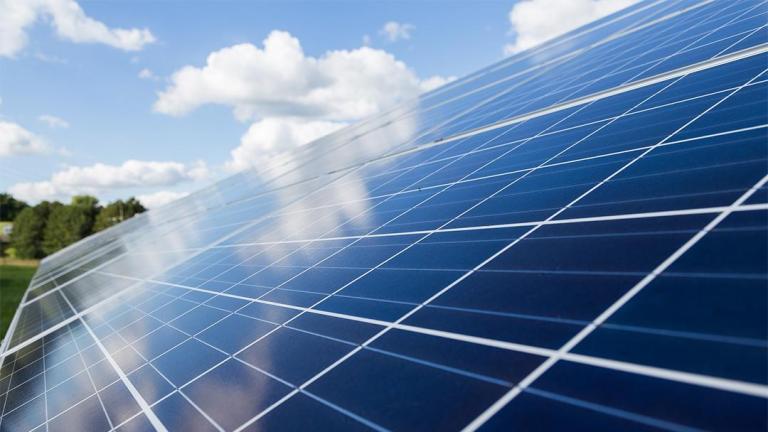A Federal Energy Regulatory Commission ruling issued in December could lead to a spike in your energy bills – but then again, maybe not.
It’s the latest energy battle set to play out in Springfield as the legislative session is set to kick off next week.
Roughly 20% of ComEd customers’ bills aren’t paying for the electricity consumers actually used; but don’t blame ComEd, per se. That money is paying for something known as “capacity” – what is essentially a payment to power plants to make sure they’ll be online, producing energy at peak demand times.
The FERC ruling seeks to change how that’s done in the region where the transmission organization PJM coordinates wholesale electricity – a region including northern Illinois (the wholesale/bulk power coordination for central and downstate Illinois is called MISO Energy).
According to FERC, the objective is to ensure the PJM capacity market stays competitive.
But critics say under President Donald Trump, FERC’s actual objective is to punish states like Illinois that have passed laws to support renewable and clean energy.
“It’s really just a back door coal bailout. It’s a back door rate increase that unfortunately, unless we act, will go into effect,” said David Kolata, director of Illinois’ Citizens Utility Board.
According to CUB, the average household’s electric bill stands to increase by $5 a month, or $864 million annually, throughout northern Illinois.
CUB, environmental groups and legislators (known collectively as the Clean Jobs Coalition) are proposing a measure, dubbed the Clean Energy Jobs Act (or CEJA) – a massive, multifaceted package that includes a provision that directly responds to the FERC decision by having Illinois opt out of PJM (and by extension, the new FERC requirements). State government’s Illinois Power Agency would handle capacity instead.
Kolata says that given the IPA is already responsible for electric supply procurement, it could quickly take on the wholesale future capacity task as well.
“The fundamental question at the end of the day is which side are you on: Are you on Team Trump or are you on Team Consumer? Are you on Team Trump or are you on Team Clean Energy? Are you on Team Higher Bills or are you on Team Lower Electric Bills for Illinois consumers? We have a clear choice here in Illinois. We can choose our own destiny, take the power back and invest in clean energy, or we can be bullied and pay more for dirty power we don’t need or want,” Kolata said Tuesday at a Clean Energy Jobs press conference in Chicago.
The Illinois Chamber of Commerce, however, says it’s too early to say what the FERC decision will mean for electric prices; chamber leaders say it’s the CEJA that would lead to higher electric bills should it become law.
“CEJA advocates should stop trying to panic the Legislature and Governor into action. We should not risk electric reliability and unnecessarily increase costs on Illinois consumers before this process plays out and we fully understand the impact on electricity prices and the competitive market,” Chamber director Todd Maisch said in a statement. “What we do know is the passage of CEJA would result in significant increases in electricity bills for Illinois residents and businesses. CEJA’s 600-plus pages include a host of unfunded initiatives that lack budgets or cost caps. Not to mention, the bill’s solution to modify how Illinois acquires ‘capacity’ – the issue at the center of calls to pass CEJA – could spike northern Illinois electricity prices by $414 million annually. This is not a choice between seeking lower emissions and keeping costs down. Both are necessary, achievable, and proven through innovation and competition.”
To that end, the renewable energy sector does not back the CEJA, and instead is pursuing its own proposal, dubbed the Path to 100.
Both plans seek to have Illinois procuring 100% of its power from renewable sources by 2050, though the Path to 100 version is far narrower in scope, largely funneling more money into current practices used to help renewable energy producers go online. Renewable advocates say the CEJA won’t successfully finance new renewable projects.
There’s also suspicion that the CEJA will aid Exelon at renewable producers’ expense; because Exelon’s nuclear plants don’t emit carbon, they are classified as clean energy.
Exelon has threatened closure of nuclear plants without intervention from the state.
In 2016, Illinois approved a law that created a surcharge on Illinois consumers’ electric bills that goes to Exelon to keep open its nuclear facilities in Clinton and the Quad Cities.
The company agrees with the Clean Energy Jobs coalition that Illinois should take action in the wake of the FERC decision, but indicated the company is not fully on board with the specific package CEJA is promoting.
“Exelon agrees that Illinois should act to protect consumers from higher energy costs and increased pollution that will result from federal policy changes that were intentionally designed to increase prices and favor fossil fuels over clean and renewable energy. We also support policies that would accelerate clean energy development and provide overall cost savings to consumers, but the Clean Jobs Coalition’s proposed legislation places a disproportionate burden on nuclear plants and contains other provisions that could unintentionally raise costs,” the statement from Exelon spokesman Paul Adams reads.
ComEd and its parent company, Exelon, have held a lot of sway in the statehouse in recent years but they presumably have lost some clout given an ongoing investigation into the companies’ lobbying tactics.
“ComEd has to provide power – that’s how we get our power. The generation Exelon provides is necessary to turn on the lights on. But in terms of setting the foundation and laying the groundwork and establishing how we want our future to look, our renewable energy future in Illinois, I don’t think they are going to be part of that broader conversation,” said state Rep. Ann Williams, D-Chicago.
“In the past, utilities used to drive that. No more,” said state Sen. Cristina Castro, D-Elgin.
It’s not just ComEd and Exelon, though.
The coal industry has a foothold in the legislature, particularly in districts where mining means jobs. NRG, which owns and operates a cluster of power generation plants including in Waukegan, Joliet and Romeoville, is also anti-CEJA.
“Let’s not forget that Illinois consumers are already paying $350MM/year in handouts to profitable nuclear power plants. There are better ways for Illinois to meet its carbon reduction goals, reliably and affordably. To effectively decarbonize the electric grid, Illinois needs to harness the benefits of the competitive markets, not abandon them as CEJA suggests, and procure carbon-free resources at the lowest cost while maintaining reliability,” NRG’s spokeswoman Pat Hammond said in a statement. “To implement clean-energy goals in a technology-neutral and competitively-driven manner, NRG introduced the Competitive Clean Energy Act in the Illinois legislature in 2019 and has advanced a market model that will allow Illinois to meet its current clean energy goals to procure more carbon-free resources at lower cost to the consumer.
Both renewable energy companies and CEJA’s backers tried to spur lawmakers to action last year, to no avail.
Pressure is on Democratic Gov. J.B. Pritzker and the Democratic-controlled legislature to do something in the new legislative session to reduce greenhouse emissions and advance renewable energy in Illinois.
An existing state law requires that by 2025, at least a quarter of Illinois’ energy comes from renewable sources like wind and solar, but Illinois is lagging behind that goal – only about 7% of Illinois energy now comes from renewables.
As Pritzker celebrated a year as governor, the Illinois Environmental Council’s Director Jennifer Walling made public a review expressing disappointment in his lackluster approach to environmental issues.
“While it is uncomfortable for me to admit, the truth is those of us who care about protecting our environment are eager to see more action from the governor on his environmental commitments,” Walling wrote. “Illinois remains one of the only Democratically controlled state(s) (sic) to not advance major clean energy legislation. The governor has yet to back the Clean Energy Jobs Act, a demonstration of leadership that would move the bill forward in the legislative process.”
The report’s also faults Pritzker for not increasing ranks at the Illinois Environmental Protection Agency after cutbacks during previous Gov. Bruce Rauner’s administration.
Follow Amanda Vinicky on Twitter: @AmandaVinicky

